Blog by Yurong Yu, PhD student from the Centre for Environmental Policy
In response to the 2021 United Nations Climate Change Conference (COP26) and the environmental crisis, we, a few of PhD students from Centre for Environmental Policy (CEP), Dyson School of Design Engineering (Dyson) and Imperial Business School (ICBS), initiated the event, “Beauty of a More Colourful World”. The event brought together 12 PhD students from 6 departments to showcase how their research ties into addressing environmental problems.
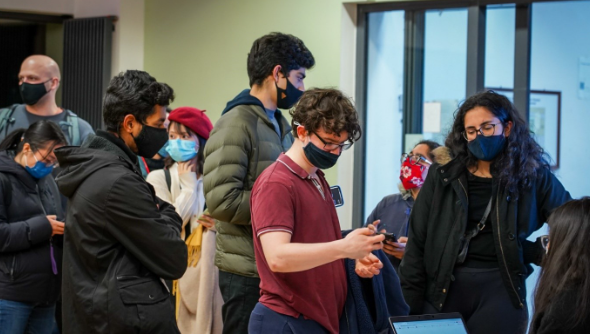
The event took place on Wednesday 1st of December 2021 and was a cross-departmental initiative, aiming to create a unique opportunity to gather researchers and wider college community with shared interests in conservation, biodiversity, sustainability, and climate change & the environment more broadly. The 12 PhD student presenters ran 9 stalls with different topics in the Queen’s Tower Rooms. The detailed topics can be found in the map below.
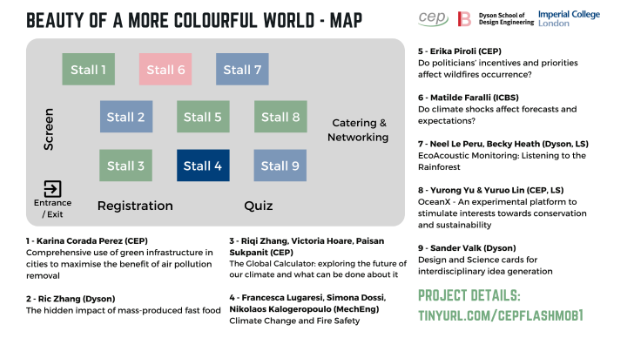
A general public audience from across Imperial were invited to this event. They were encouraged to learn about all 9 different projects and could take part in quizzes with questions spanning each stall to demonstrate their newfound knowledge and win prizes. It was a fun and immersive event which saw high turnout, with attendees enjoying the stalls, snacks, drinks and, of course, prizes!
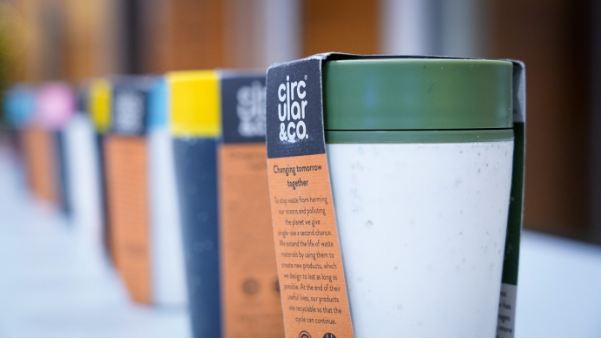
As the organizers initiating this event, we (Yurong Yu and Neel Le Penru), realized the complexity of environmental problems requires interdisciplinary collaboration, so interdepartmental communication among researchers is critical. More importantly, it is crucial for junior researchers to learn how to communicate their research to a lay audience, to achieve a great impact. After some discussion, we came up with the idea of inviting interactive and entertaining presentations from multiple departments, using the formats of demos, prototypes, installations, games, and so on, to inspire members of our Imperial community.
Yurong and Yuruo played a video of training students to plant coral reef in Hainan, China, as well as a PowerPoint presentation to explain the whole project, receiving great feedback from the audience. This project is part of Yurong’s PhD research of how to increase public awareness of conservation, which can further lead to a fundamental behaviour change.
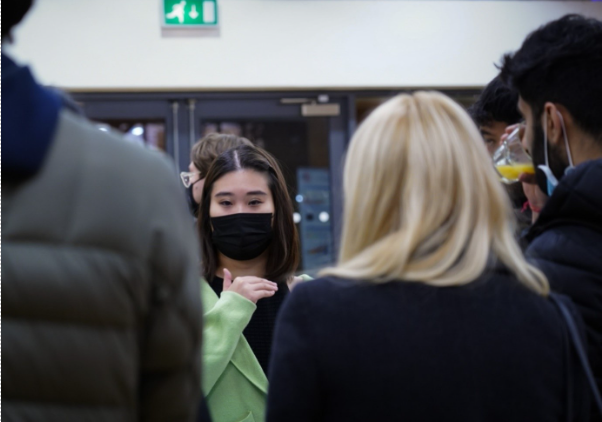
Neel’s presentation featured a ‘listening station’ with sounds and images from the Bornean rainforest. His research group explore EcoAcoustic Monitoring, which involves listening to the natural environment’s soundscape to infer metrics of ecosystem health. They designed and deployed a network of low-cost, open-source field recorders to passively and continuously monitor various environments. They then analysed this data with techniques including machine learning (for predicting aspects of ecosystem health) and, more recently, spatial audio analysis (for locating sounds). As part of the Stability of Altered Forest Ecosystems (SAFE) project, they are specifically using EcoAcoustic Monitoring to explore how human pressures are impacting globally vital rainforest ecosystems by analysing soundscapes across a habitat degredation gradient from primary rainforest to oil palm plantations in Malaysian Borneo.
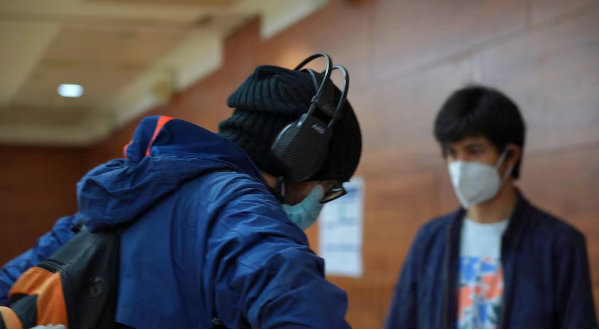
Francesca Lugaresi and her colleagues from Department of Mechanical Engineering are part of Imperial Hazelab, the research group studying heat transfer, combustion and fire science. Francesca’s research is on improving the façade of a building, to increase its sustainability performance and reduce energy use.
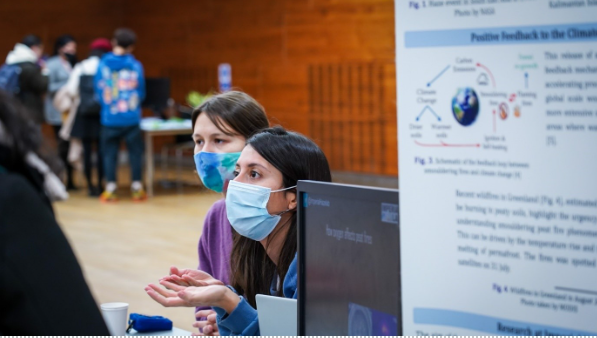
Matilde Faralli is a second-year PhD student from Department of Finance, ICBS. Her research is about preserving financial stability. To achieve this, a key part is to understand how to correctly assess and price climate-related risks. Her work studies: how to incorporate natural hazards such as wildfires, flooding, etc. into expectations and forecasts; how climate risks shape public perception of future natural disasters and the associated economic damages; and, how to forecast adjustments following climate events.
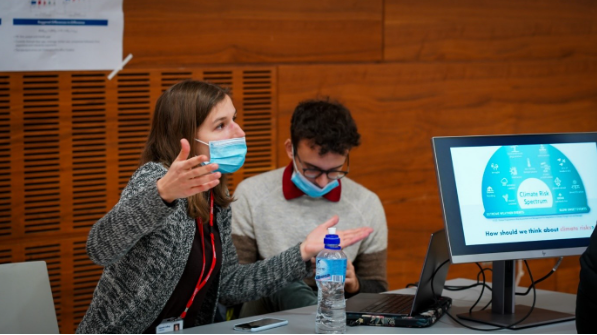
The event received great feedback from our audience. Professor Mark Burgman, the Director of CEP commented, “It is a very well-organized event, with impressive attendance across Imperial. I enjoyed these presentations very much.” Kevin Sum, our volunteer journalist, interviewed a few attendees on the day, and heard from Xilan, an MSc student from the Department of Civil and Environmental Engineering, that the event made her realize there are so many disciplines at Imperial that are environment–related, and that they are all so fun!
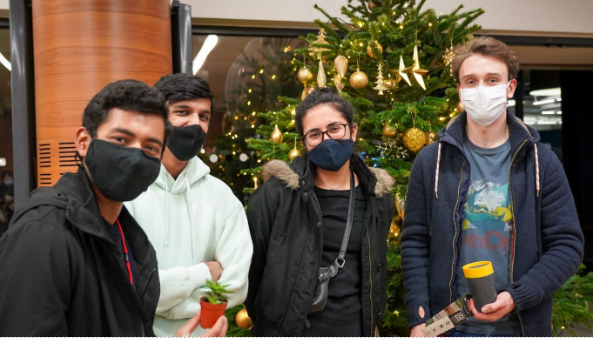
Many presenters found the interaction with the audience was beyond their expectations too. Sander Valk (Dyson) found it pleasant that so many students and faculty members are interested in learning his climate change related card game. Victoria Hoare (CEP), Riqi Zhang (CEP), Karina Corada Perez (CEP), Erika Piroli (CEP) and Ric Zhang (Dyson) all found the format of this event very engaging. The quiz competition “nudged” the audience to approach presenters and ask more questions about their research. Sander said, “I loved the format of the event!”
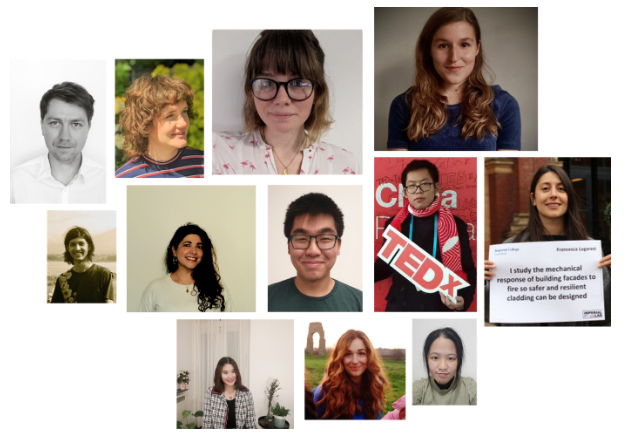
Please read more about all presentations here: tinyurl.com/cepflashmob1
Last but not least, we are grateful for the generous financial support from the Graduate School and Centre for Environmental Policy for this event.